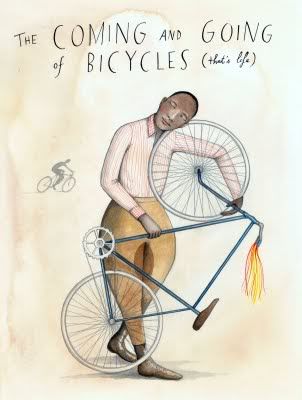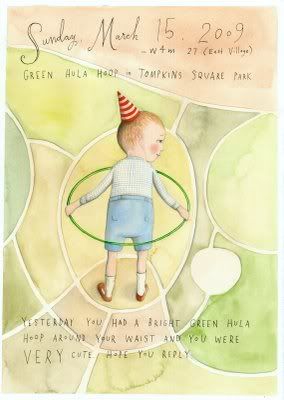Happiness Mashup
Further reading on Happiness, one was from a link off of Martin Seligman's website. Seligman is credited with being the father of 'Postive Psychology'. Read the full Times article here. Parentheses are all mine.

"For most of its history, psychology had concerned itself with all that ails the human mind: anxiety, depression, neurosis, obsessions, paranoia, delusions. (Seligman,) "I realized that my profession was half-baked. It wasn't enough for us to nullify disabling conditions and get to zero. We needed to ask, What are the enabling conditions that make human beings flourish? How do we get from zero to plus five?"
So, what has science learned about what makes the human heart sing? Research by Diener, among others, has shown that once your basic needs are met, additional income does little to raise your sense of satisfaction with life. A good education? Sorry, Mom and Dad, neither education nor, for that matter, a high IQ paves the road to happiness. Youth? No, again. In fact, older people are more consistently satisfied with their lives than the young. Marriage? A complicated picture: married people are generally happier than singles, but that may be because they were happier to begin with.
Our overall happiness is not merely the sum of our happy moments minus the sum of our angry or sad ones.
As a result of his (Seligman's) research, he finds three components of happiness: pleasure ("the smiley-face piece"), engagement (the depth of involvement with one's family, work, romance and hobbies) and meaning (using personal strengths to serve some larger end). Of those three roads to a happy, satisfied life, pleasure is the least consequential, he insists: "This is newsworthy because so many Americans build their lives around pursuing pleasure. It turns out that engagement and meaning are much more important."

Lykken proposed the idea that each of us has a happiness set point much like our set point for body weight. No matter what happens in our life we tend to return in short order to our set range. Some post-tsunami images last week of smiling Asian children returning to school underscored this amazing capacity to right ourselves. A study of lottery winners done in 1978 found, for instance, that they did not wind up significantly happier than a control group. Even people who lose the use of their limbs to a devastating accident tend to bounce back, though perhaps not all the way to their base line.
In his extensive work on adaptation, Edward Diener has found two life events that seem to knock people lastingly below their happiness set point: loss of a spouse and loss of a job. It takes five to eight years for a widow to regain her previous sense of well-being. Similarly, the effects of a job loss linger long after the individual has returned to the work force.
(The article goes on to denote various ways to boost and'turbocharge' your happiness, including blessings lists, gratitude lists, acts of kindness etc.) "
'Mihaly Csikszentmihalyi (pronounced cheeks sent me high)' from this article is also referenced in this NY Times article entitled 'If Not Passion for the Job, at Least Warm Feelings', about finding job satisfaction. Some good points mentioned here too (but in a much more feet on the ground, applied to career way).

All images are from a wonderful new blog shared by a friend on Facebook, Missed Connections NY. Sophie Blackall illustrates the messages on Missed Connections forums. Sometimes I do go to Gumtree and read all the misses and 'Please call if you remember me's and think about how improbable it is that the other party will be browsing the same forum on the same day. I hope some come to fruition :)

"For most of its history, psychology had concerned itself with all that ails the human mind: anxiety, depression, neurosis, obsessions, paranoia, delusions. (Seligman,) "I realized that my profession was half-baked. It wasn't enough for us to nullify disabling conditions and get to zero. We needed to ask, What are the enabling conditions that make human beings flourish? How do we get from zero to plus five?"
So, what has science learned about what makes the human heart sing? Research by Diener, among others, has shown that once your basic needs are met, additional income does little to raise your sense of satisfaction with life. A good education? Sorry, Mom and Dad, neither education nor, for that matter, a high IQ paves the road to happiness. Youth? No, again. In fact, older people are more consistently satisfied with their lives than the young. Marriage? A complicated picture: married people are generally happier than singles, but that may be because they were happier to begin with.
Our overall happiness is not merely the sum of our happy moments minus the sum of our angry or sad ones.
As a result of his (Seligman's) research, he finds three components of happiness: pleasure ("the smiley-face piece"), engagement (the depth of involvement with one's family, work, romance and hobbies) and meaning (using personal strengths to serve some larger end). Of those three roads to a happy, satisfied life, pleasure is the least consequential, he insists: "This is newsworthy because so many Americans build their lives around pursuing pleasure. It turns out that engagement and meaning are much more important."

Lykken proposed the idea that each of us has a happiness set point much like our set point for body weight. No matter what happens in our life we tend to return in short order to our set range. Some post-tsunami images last week of smiling Asian children returning to school underscored this amazing capacity to right ourselves. A study of lottery winners done in 1978 found, for instance, that they did not wind up significantly happier than a control group. Even people who lose the use of their limbs to a devastating accident tend to bounce back, though perhaps not all the way to their base line.
In his extensive work on adaptation, Edward Diener has found two life events that seem to knock people lastingly below their happiness set point: loss of a spouse and loss of a job. It takes five to eight years for a widow to regain her previous sense of well-being. Similarly, the effects of a job loss linger long after the individual has returned to the work force.
(The article goes on to denote various ways to boost and'turbocharge' your happiness, including blessings lists, gratitude lists, acts of kindness etc.) "
'Mihaly Csikszentmihalyi (pronounced cheeks sent me high)' from this article is also referenced in this NY Times article entitled 'If Not Passion for the Job, at Least Warm Feelings', about finding job satisfaction. Some good points mentioned here too (but in a much more feet on the ground, applied to career way).

All images are from a wonderful new blog shared by a friend on Facebook, Missed Connections NY. Sophie Blackall illustrates the messages on Missed Connections forums. Sometimes I do go to Gumtree and read all the misses and 'Please call if you remember me's and think about how improbable it is that the other party will be browsing the same forum on the same day. I hope some come to fruition :)